For the estimated one in a hundred people in the UK with coeliac disease, gluten-free products are a medical necessity. This is a serious illness where the body’s immune system attacks its own tissues when gluten is eaten.
But for others, even those experiencing symptoms of gluten intolerance, the unfolding cost of living crisis means that discretionary purchases of specialist gluten-free foods need more weighing up. Which means manufacturers of gluten-free products, many typically bakers, are having to work harder to justify their credentials and price premiums, and attract a wider audience.
As a result, a decade after the gluten-free trend took off, gluten-free products are increasingly “gluten-free plus”: plus convenience, plus vegan, plus halal – the more pluses the better.
Manufacturers are also tackling a perception of gritty texture and poor nutrition that dogs gluten-free products, and the paradox that even though consumers choose gluten-free options for health reasons, they may lack nutritional value due to the technical challenges of substituting gluten.
Gluten-free bread options, until recently, were very basic and starchy, but products are becoming more flavoursome, higher in protein and higher in fibre
Products now compare better to standard versions, with more gluten-substitute ingredients available to manufacturers. The gluten-free market is evolving, and so are the suppliers which serve it.
Take Genius Foods as an example, the trail-blazing gluten-free bakery founded in 2009. It was one of the first to offer gluten-free bread, and had become a leading gluten-free brand in the UK and France, and also present in the US, Australia, and Germany, producing rolls, breads, bagels, wraps and more. The business was acquired in June by the investment arm of German confectionery group Katjes, which said it was investing in the future of nutrition outside of confectionery.
It has announced that it will focus on “gut wellness in general” post-acquisition, with Genius products already boasting multiple credentials per product, such as “high-fibre”, “active cultures”, “vegan”, “milk-free”, “wheat-free”, as well as gluten-free and artisanal.
Major players
The other big noise brand when it comes to gluten-free bakery is Warburtons Gluten Free, launched in 2011 as Newburn Bakehouse.
It has grown from being the third biggest brand in gluten-free bakery to the number one brand, with a 23.2% value share, it says, quoting Nielsen Scantrack (EPOS data) to 16 July 2022. Innovation, it says, is key to sales success.
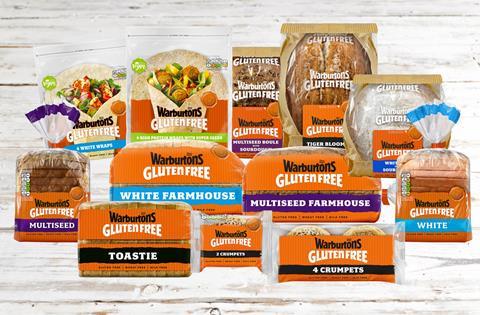
“We strive to continue to bring new and exciting products to the gluten-free market to give a choice of high-quality products to consumers,” a spokesperson explains.
The latest product innovations for Warburtons Gluten Free include a range of super soft rolls, in white, brioche and seeded, made with ingredients including tapioca starch, potato starch, maize starch, and pea protein. The rolls “receive fantastic consumer feedback for their taste and quality and are a real hero product for the brand”, the spokesperson says. “Wrapped rolls are the key driver of unit and value growth in the category, and the Warburtons’ Gluten Free rolls are the main contributor to this.”
Warburtons’ also recently launched 400g Gluten Free Seeded Bloomer with sourdough, made with four types of seeds (sunflower, linseed, millet and poppy), wheat-free, milk-free as well as gluten-free, halal and kosher. The product is on sale at Sainsbury’s for £3.65, compared with £2.25 for a Warburtons Speciality Multi Grain and Seed Bread 400g.
With a premium gluten-based option nearly half the price of the gluten-free bloomer, consumers with budgeting concerns are being asked to swallow hard.
The Warburtons’ spokesperson explains: “Economies of scale, complexity of ingredients and production all impact the price of gluten-free bakery when comparing with the core range.”
And customers are willing to pay a premium for a good product. For example, the Tiger Bloomer has the highest price point of its gluten-free range but has become Warburtons’ number one SKU in terms of both volume and value sales in the category. The brand is also “constantly striving to reduce complexity in our supply chain” and “always on the lookout for better ways to source and manufacture our fantastic range of gluten-free bakery products,” the spokesperson adds.
Complexity at a cost
The complexity of the gluten-free production process at every stage from field to plate does come at a cost, Aine McHugh, senior NPD manager at Edinburgh-based Nairn’s, also reports.
Nairn’s operates a fully segregated gluten-free supply chain, where the oats are tested at every stage of the growing, milling and baking processes. Nairn’s has a separate bakery for gluten-free products and each batch of finished product is sent off for final gluten testing by an independent lab, adding expense to the production process.
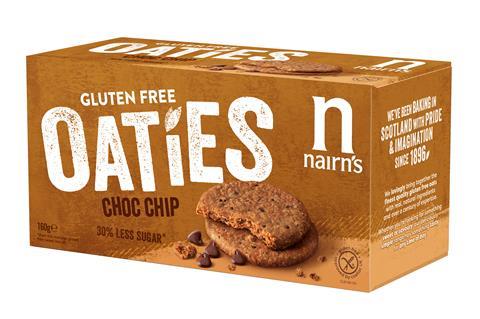
Suppliers can’t avoid a premium with gluten-free, as Andrew Daly, founder and director of Good It’s Gluten Free, also reports. “We believe that people with allergies shouldn’t have to pay over the odds to meet their needs. That said, there is a premium that comes with allergy-free manufacturing, due to the batch testing, cleaning and due diligence required to keep the site allergen free,” he says.
Good It’s Gluten Free, a new entrant in the gluten-free market, has a product portfolio including meal kits, breads, sauces and accompaniments, based on world flavours. Products can be purchased from its own website, from Amazon, and will be launching into two major multiples later in 2022.
The market is moving forward, Daly comments: “Gluten-free bread options, until recently, were very basic and starchy, but products are becoming more flavoursome, higher in protein and higher in fibre. That said, many options on the market now are highly processed and contain high levels of sugar.”
For his company the increased availability of ingredients such as free-from flours, gums and seeds provides both flavour and dietary benefits and “has really changed the game when it comes to free-from solutions”.Sourcing remains a time and labour-intensive task though.
Nairns’s gluten-free business is likewise complicated in terms of formulation and requires a lot of substitutes for ingredients which are either naturally or contaminated in the supply chain with gluten, says Aine McHugh. “Formulation challenges remain ongoing as we strive to create gluten-free versions of main category products without using artificial substances as replacers. We continue to do our utmost to produce as clean-labelled products as possible that are delicious in their own right.”
Sourcing issues
Leicester-based Positive Bakes, which has a dedicated gluten-free and vegan bakery, and uses organic ingredients where possible, also faces sourcing complexities.
Co-founder Aatin Anadkat reports: “There are more gluten and vegan ingredients available to brands now than ever before, but they aren’t always ingredients we would use in our products.”
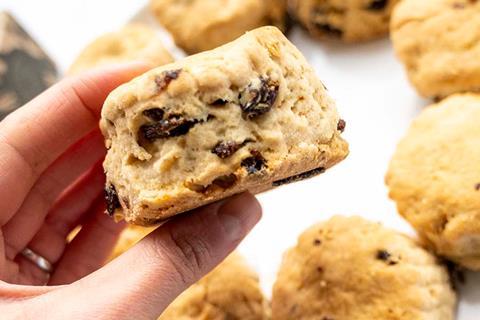
The online business, launched in 2020 by husband-and-wife Aatin and Helen Anadkat, has carved out a niche selling in spas and upmarket hotels across the UK, along with visitor attraction sites, and is looking to increase and improve on its gluten-free and vegan offering.
Anadkat comments: “I think the next five years will be a challenge, with prices rising, but there will always be a place for premium and quality products in the market we operate in.”
Andrew Daly is also confident about the future for gluten-free as the market evolves, predicting significant continued growth, despite economic gloom.
“As consumers become more educated about general gut health, we’re likely to see more people without official conditions make more informed choices and choose free-from,” he says.
Consumer interest in gut health and the microbiome is growing, meanwhile coeliac disease isn’t going anywhere. The new, improved gluten-free sector is well placed to cash in on a wider audience.




















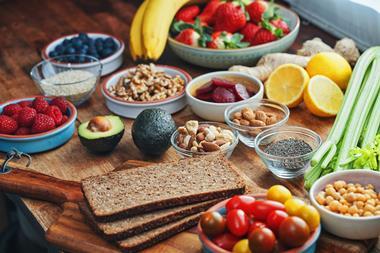




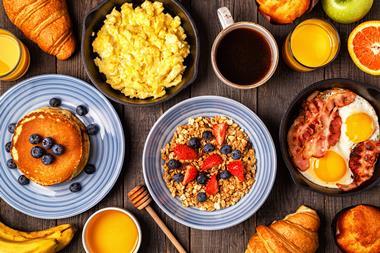
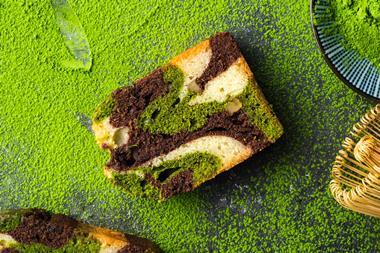
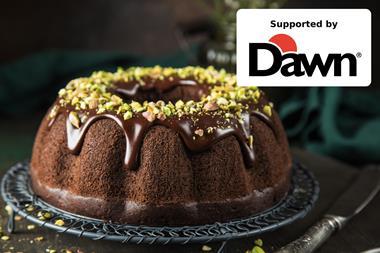
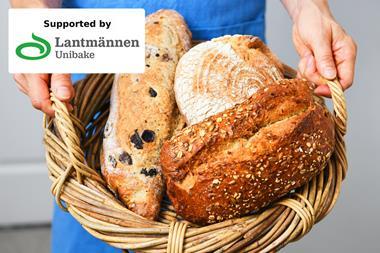
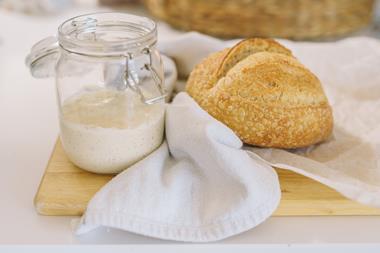

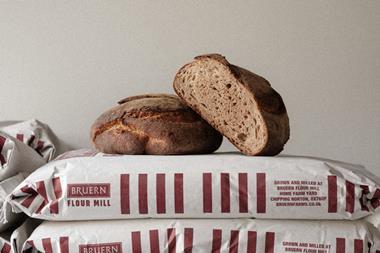

No comments yet